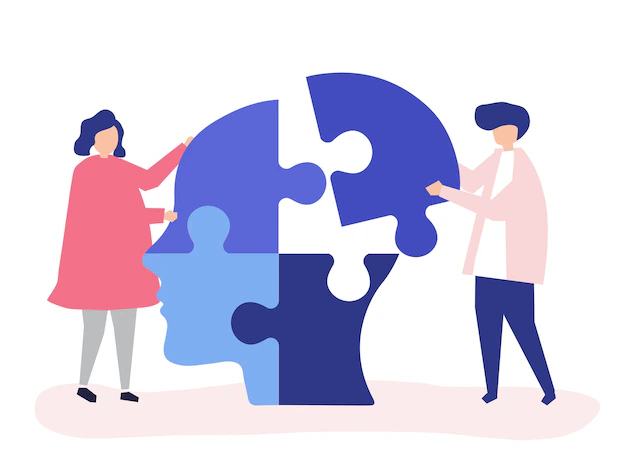Key Theories in Cognitive Psychology: Insights into Human Cognition
Cognitive psychology encompasses various theories that elucidate the mechanisms behind human thought processes, memory, problem-solving, and perception. These theories provide frameworks for understanding how individuals acquire, process, and utilize information in diverse situations. Let’s delve into some significant cognitive psychology theories, accompanied by examples illustrating their applications.

Page Contents
Key Theories in Cognitive Psychology: Insights into Human Cognition
Table on Theories
Here’s a table summarizing key cognitive psychology theories, their descriptions, and examples:
| Theory | Description | Example |
|---|---|---|
| Information Processing | Compares the mind to a computer, focusing on stages of input, processing, storage, and output of information. | Reading a book involves encoding words, storing plot details, and recalling information for comprehension. |
| Schema | Individuals organize knowledge into mental frameworks (schemas) to interpret new information based on existing knowledge. | Using previous restaurant experiences to anticipate the type of service and food in a new restaurant. |
| Dual Process | Suggests two systems: System 1 (fast, intuitive) and System 2 (slow, analytical), guiding different types of thinking. | Reacting instinctively (System 1) to a sudden threat and, if time permits, deliberate decision-making (System 2). |
| Cognitive Behavioral | Explores the relationship between thoughts, feelings, and behavior, emphasizing the impact of thoughts on emotions and actions. | Challenging negative thoughts in therapy to alleviate anxiety and change behavior in social situations. |
| Theory of Constructivism | Posits that individuals actively construct knowledge through experiences, interactions, and reflection. | Students learning through hands-on activities and discussions to build understanding rather than passive learning. |
Information Processing Theory
This theory likens the human mind to a computer, suggesting that information undergoes stages of processing. For instance, when someone reads a book, they receive input (words on the page), process and encode that information, store key details in memory, and later retrieve it to understand the story.
Schema Theory
Schemas are mental frameworks individuals use to interpret and comprehend new information based on existing knowledge. For example, someone uses their previous experiences in various restaurants to predict the quality of service or the type of cuisine they might encounter in a new eatery.
Dual Process Theory
This theory posits two systems of thinking: System 1 operates quickly and intuitively, while System 2 involves slower, deliberate thinking. In a sudden threat, System 1 prompts immediate reactions, while System 2 engages in more deliberate decision-making if time permits.
Cognitive Behavioral Theory
This theory focuses on the relationship between thoughts, emotions, and behavior. Through cognitive behavioral therapy, individuals challenge negative thoughts to alleviate anxiety and modify their behavior in social situations.
Theory of Constructivism
Constructivism asserts that individuals actively build their understanding through experiences and interactions. In education, this theory promotes hands-on activities and discussions, allowing students to construct knowledge actively.
Conclusion
These cognitive psychology theories offer valuable frameworks for understanding the complexities of human cognition. By applying these theories in various domains, from education to therapy, researchers and practitioners gain insights into how individuals process information, make decisions, and interact with the world.
Through these lenses, cognitive psychology continues to unravel the mysteries of the human mind, providing invaluable contributions to understanding and improving human cognition in diverse contexts.







